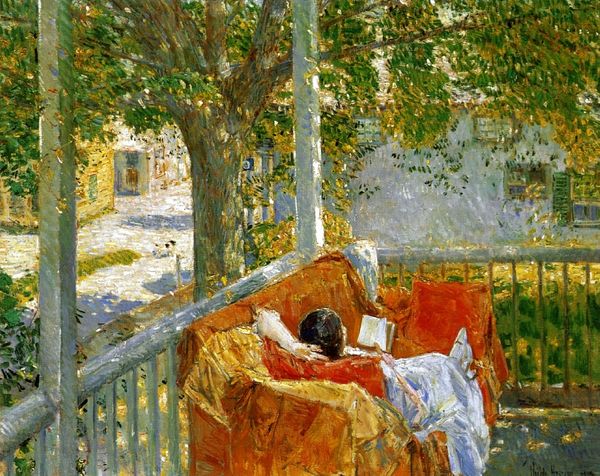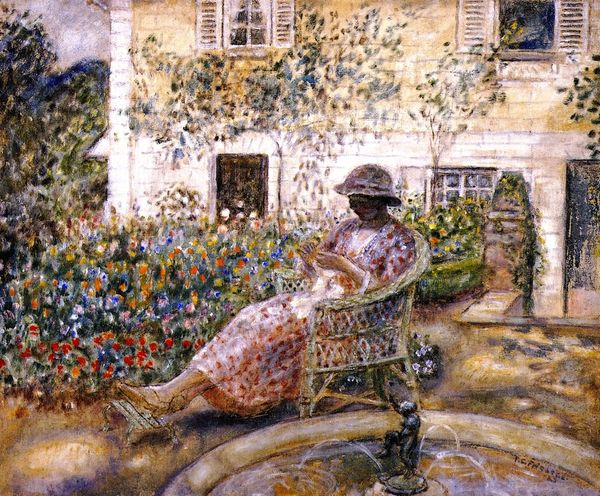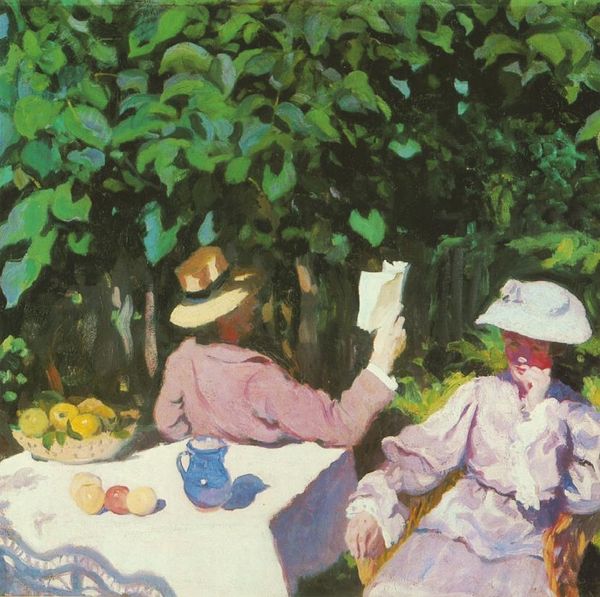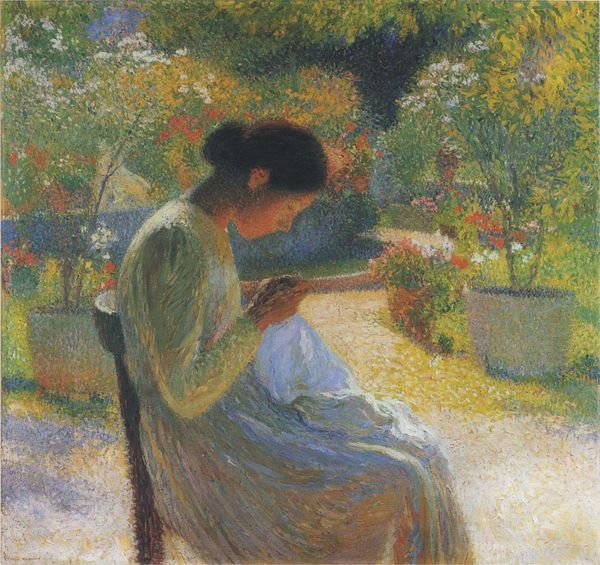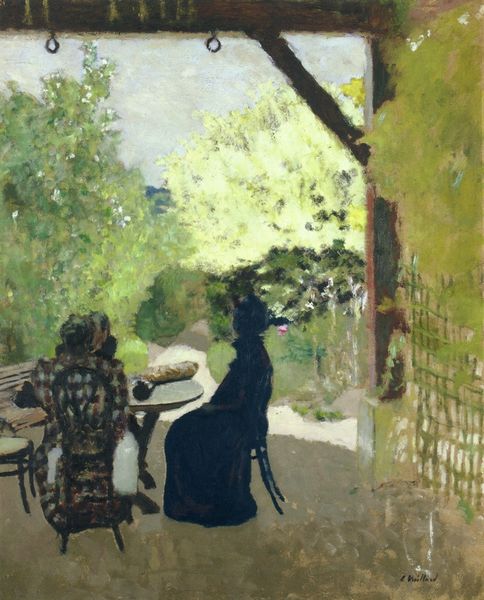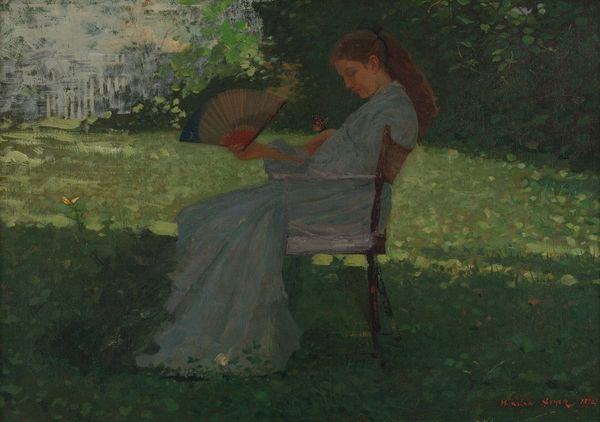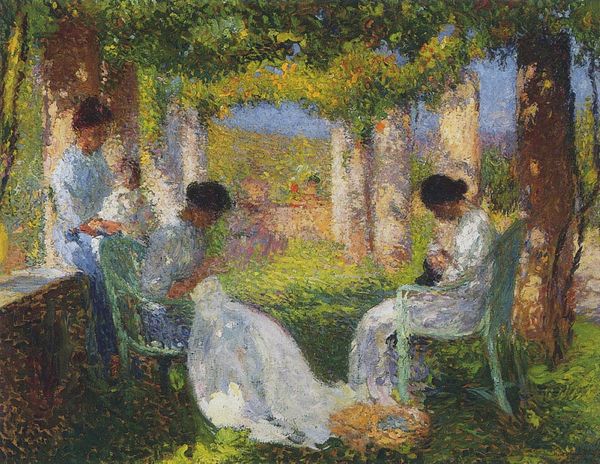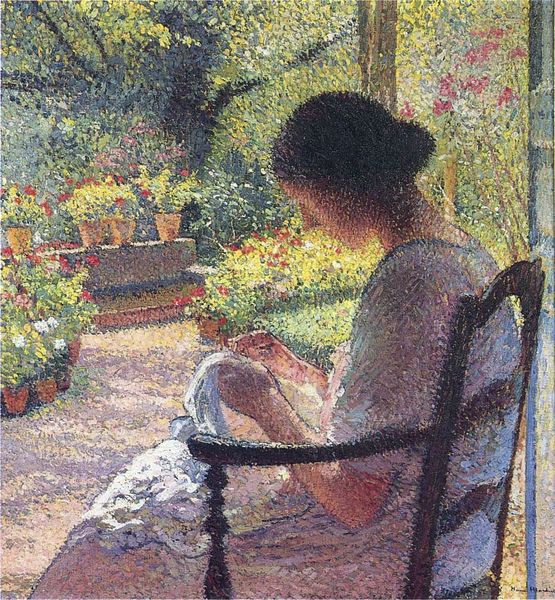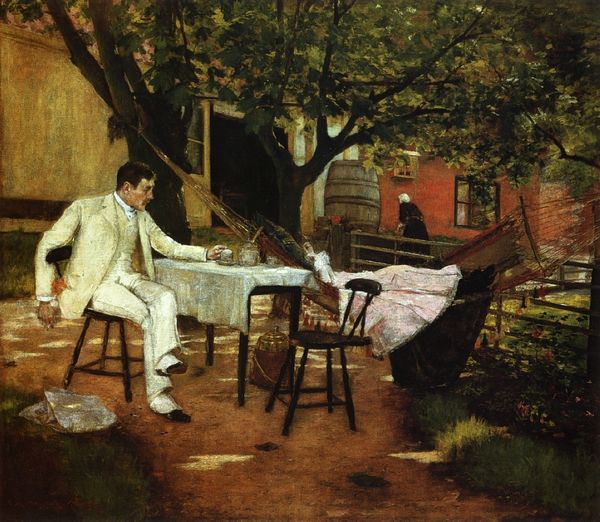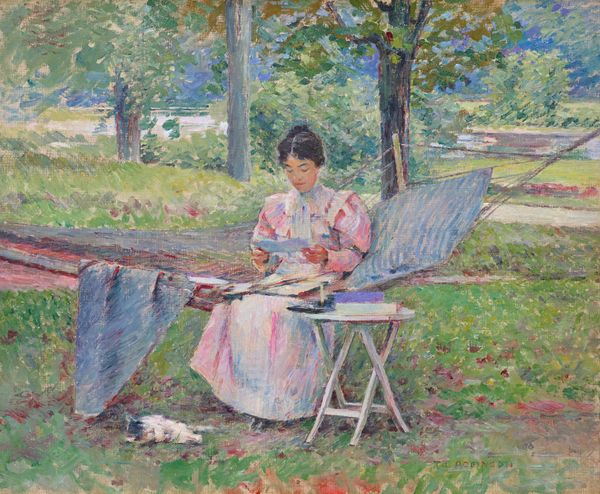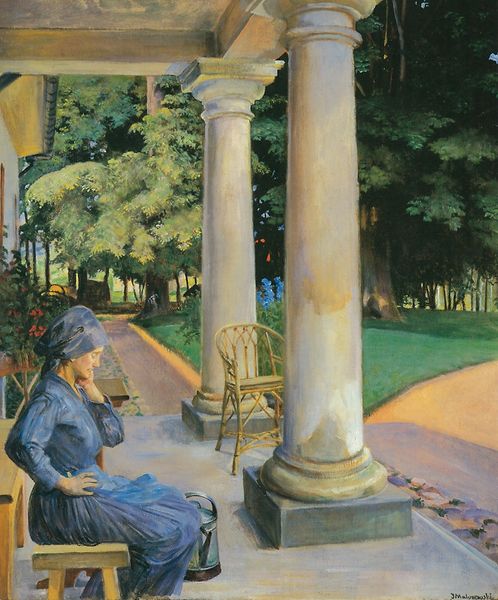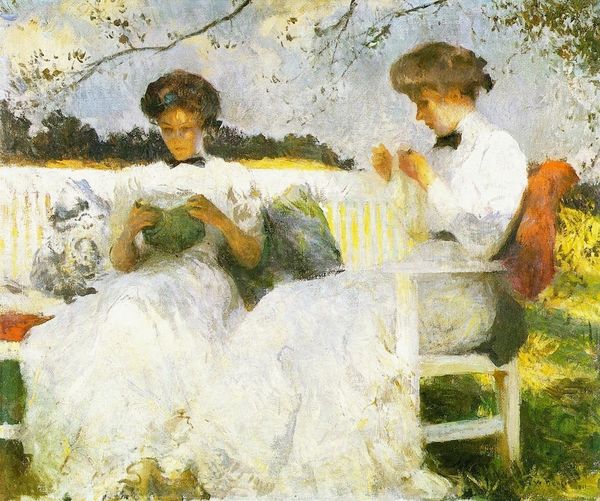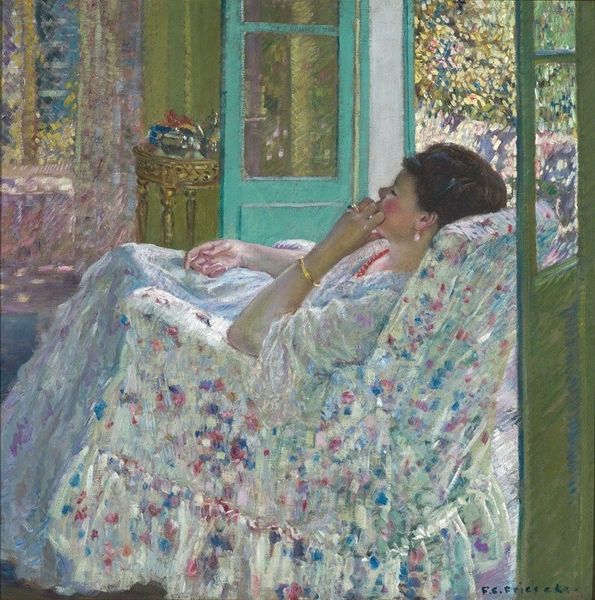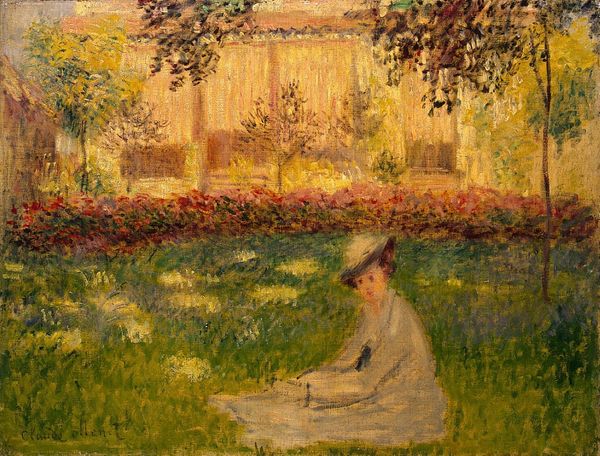
#
red and green
#
unusual home photography
#
figurative
#
green tone
#
possibly oil pastel
#
oil painting
#
green background
#
greenery
#
painting painterly
#
green and neutral
#
warm toned green
Copyright: Public Domain: Artvee
Gustave Caillebotte painted "The Orange Trees" sometime in the 1870s, and in it he explores the lives of the Parisian bourgeoisie. Here, the artist depicts a quiet, intimate scene of leisure, but it also reveals subtle hints of the social hierarchy of the time. The carefully manicured garden, the fashionable clothing of the figures, and the leisurely activities they are engaged in all speak to a life of privilege and comfort made possible by the rapidly expanding French empire. The rigid design of the garden suggests the imposition of social order onto the natural world, subtly reflecting the way social structures constrain human behavior. Caillebotte made a close study of Impressionism, but, uniquely, he also had the financial independence to paint what he wanted, and so his work can act as a kind of social commentary on the institutions of the time. To fully understand Caillebotte's work, one can examine publications, records and other documents from the period.
Comments
No comments
Be the first to comment and join the conversation on the ultimate creative platform.
